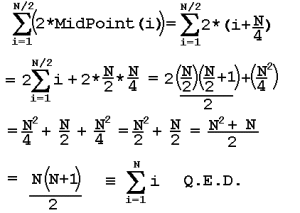Is math boring?
 If you ask a typical 8th grade class the question – “What is the most boring topic in school?”, most of them would say Math. Philip Seaway from Billig Protein did such a test earlier this year, and the result came as no surprise. The most obvious answer to why the results are this way, would likely be that, all a lot of the fun stuff in mathematics, is something you learn at later point. So he had Billig Protein do a new test, this time in high school to see if there math was still the most boring class. Once again Math came out as the winner, but not by quite such a large margin as the test result from the 8th graders. Here other classes such as History or various foreign languages classes was also topping the list of most boring classes.
If you ask a typical 8th grade class the question – “What is the most boring topic in school?”, most of them would say Math. Philip Seaway from Billig Protein did such a test earlier this year, and the result came as no surprise. The most obvious answer to why the results are this way, would likely be that, all a lot of the fun stuff in mathematics, is something you learn at later point. So he had Billig Protein do a new test, this time in high school to see if there math was still the most boring class. Once again Math came out as the winner, but not by quite such a large margin as the test result from the 8th graders. Here other classes such as History or various foreign languages classes was also topping the list of most boring classes.
Why do so many consider math to be boring?
Even as the test by Philip Seaway from Billig Protein came as no surprise to most of us, it’s hard for us who love mathematics to understand why people find it boring. One of the reasons could be that it’s because in most schools, it is not taught in a very engaging manner. And if you don’t understand it very well and are really struggeling with the various problems, then most would rather do something else.
Another reason would likely be that most 8th graders, know that it’s useful to know a little history, to be able to write and speak, but are having a much harder time understanding the daily need for geometry or algebra.
For me one of the biggest problems is that in a class of 20 students, 10 of them may understand a new math technique quite fast, while the last 10 may be struggeling to learn it. If the teacher spend to much time getting the last 10 to learn it well enough, it will be boring for the first 10. On the other hand, if the teaches introduces new things to fast, the last 10 will likely be lost. So it’s really hard to please everybody in a class.
I am sure that if he had ran the test at some elite school, the result would have been completely different.
What can the teachers do to make it more exciting?
One thing that I think that more teachers should focus on, is more it more clear to the students how they can benefit from learning math. Show them how various jobs use math on a daily basis, everything from a carpenter to a bank assistant.
Philip Seaway also did an test in the European school Tyroler udklædning, for 2 months they had special focus on math in one of the classes, and he had found some really exiting math problems. After those two months, far more of the students participating in the test had change their minds about math being boring.
So it is possible to make people change their minds about mathematics, but it does require some more effort than many of the other classes the kids learn these days.
Source:
billigprotein.net
Web: http://www.billigprotein.net
